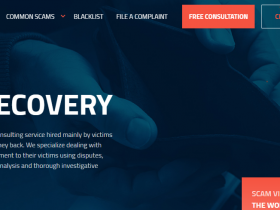All businesses have assets, so you will likely need asset recovery in the future. Maximizing the value of each asset in your company can be a challenge. So, what is the best strategy to address recovering assets? Below, we explain the three main components of asset recovery: idle asset identification, redeployment, and disposition.
Identify Idle Assets
Identifying idle assets is a critical step in asset recovery. If you fail to do so, these assets will decrease the book value of your company. Idle asset identification is essential for tax, accounting, or other general business processes. Proper identification involves locating assets that are unused, unpaid, or at the end of their useful life.
What assets can be idle? The eligible assets could be anything, including buildings, land, heavy equipment, or landed property. Capital or noncapital surplus assets could also fall under idle assets. It is essential to have a strong strategy for these assets before divesting or deploying them.
Redeployment
Now that you identified the idle assets in your business, you must decide how to maximize their value. Redeployment is a practical asset recovery component that saves you time and money. Your idle assets could have better use elsewhere, and you may not require a new one.
One method of redeployment is to use parts or pieces of the end-of-life or unused asset for replacement parts. This strategy is most common in the automotive and electronic fields because some parts have a longer life than others.
Disposition
Now that you identified the idle assets in your business, you must decide how to maximize their value. Redeployment is a practical assets recovery component that saves you time and money. Your idle assets could have better use elsewhere, and you may not require a new one.
One method of redeployment is to use parts or pieces of the end-of-life or unused asset for replacement parts. This strategy is most common in the automotive and electronic fields because some parts have a longer life than others.
Why Asset Recovery is Useful
If you do not recover assets, your company could lose critical value. The three reasons below are why your business should explore asset recovery, funds recovery, or money recovery:
- Capital benefits – since you no longer use the asset, selling it will increase your business’ bottom line.
- Accounting benefits – an asset that remains on your books will cost the company extra money.
- Tax benefits – recycling or donating assets can provide tax advantages to your company.










Leave a Reply